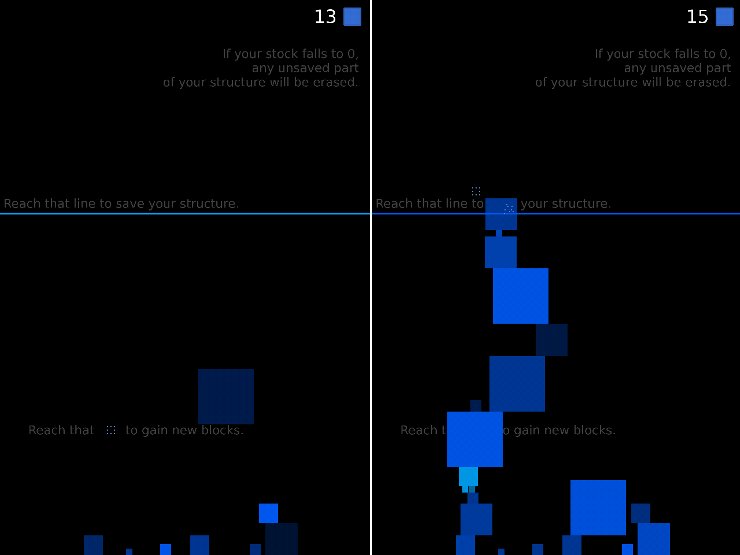

Would you play a game that was impossible to complete in your lifetime? That's the question begged by One Life Remains' 'Generations'. Rather than besting level after level or chasing a new top score the challenges facing a 'Generations' gamer are more philosophical: who do I bequeath this game to?
Generations is a puzzle game, designed for play on a smartphone. From there the similarities to the rest of todays app store games ends. Players assemble structures from falling blocks (taking cues from the iconic Tetris game), with the aim of reaching a checkpoint bar. Once the tower reaches this point a saving phase is triggered: the entire structure built thus far is slowly scanned prompting the user to contemplate the virtual block tower they've assembled. The twist is that the longer the game has been played, the longer this period of reflection lasts.
The offbeat pacing means that Generations has more in common with concept art than Angry Birds. One Life Remains' objective in changing gameplay motivations was to explore whether a save file can attain an heirloom status similar to a family painting. By tackling this question through a smartphone app they've created an interesting situation which goes beyond informational inheritance issues of digital death and also comments on the speed of contemporary entertainment media. Successful smartphone apps live or die based on how well they leverage gamification. At its worst this addictive tactic encourages superfluos gaming experiences by exploiting behavioural psychology. We like seeing a slow media take on smartphone games for a change.



Discussion